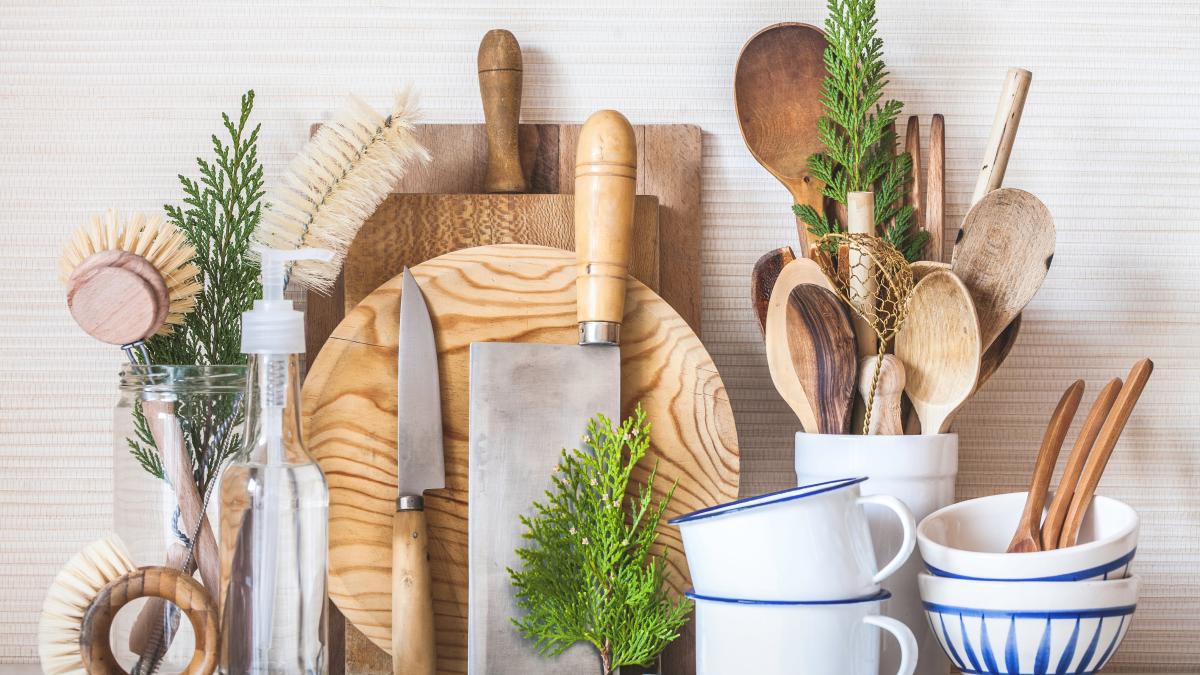Introduction:
As sustainability becomes a focal point in the lifestyles of UK residents, the quest for eco-friendly practices extends to every corner of the home, including the kitchen. An often-overlooked aspect of sustainable living is kitchen organization and storage. This article explores innovative and eco-conscious kitchen organization solutions tailored for UK homes, providing practical tips and ideas to enhance sustainability while maintaining a well-organized and functional kitchen space.
The Importance of Eco-Friendly Kitchen Organization
Reducing Environmental Impact:
Traditional kitchen organization practices may involve the use of single-use plastics and non-recyclable materials, contributing to environmental degradation. Eco-friendly kitchen organization seeks to minimize this impact by opting for sustainable alternatives.
Promoting a Sustainable Lifestyle:
Sustainable kitchen organization aligns with the broader goal of promoting an eco-friendly lifestyle. By incorporating environmentally conscious storage solutions, individuals contribute to the reduction of waste and the conservation of resources.
Sustainable Materials for Kitchen Organization
Bamboo and Wood:
Bamboo and wood are renewable and biodegradable materials that make excellent choices for eco-friendly kitchen organization. Bamboo storage bins, utensil holders, and cutting boards are not only durable but also aesthetically pleasing.
Glass Containers:
Glass containers are a sustainable alternative to plastic for storing dry goods, leftovers, and pantry staples. They are non-toxic, recyclable, and do not release harmful chemicals into the food.
Stainless Steel:
Stainless steel is a durable and long-lasting material that is easily recyclable. Stainless steel storage containers, shelving units, and magnetic spice racks are eco-friendly options for a well-organized kitchen.
Recycled Plastic:
For those who prefer plastic, opting for containers made from recycled materials helps divert plastic from landfills. Look for kitchen organization items made from post-consumer recycled plastic.
Sustainable Pantry Organization
Zero-Waste Shopping:
Embrace zero-waste shopping by investing in reusable bulk food containers. This eliminates the need for single-use packaging and allows for efficient organization of pantry staples like grains, legumes, and snacks.
Mason Jars and Glass Containers:
Mason jars and other glass containers are excellent choices for storing dry goods like pasta, rice, and cereals. They are reusable, easy to clean, and provide a clear view of the contents.
Labeling with Recyclable Materials:
When organizing pantry items, opt for labels made from sustainable materials such as recycled paper or bamboo. This ensures that even the labeling process aligns with eco-friendly principles.
Sustainable Refrigerator and Freezer Organization
Beeswax Wraps:
Replace plastic wraps and aluminum foils with beeswax wraps for covering food items in the refrigerator. Beeswax wraps are reusable, washable, and biodegradable.
Silicone Food Storage Bags:
Instead of disposable plastic bags, consider silicone food storage bags. They are durable, dishwasher-safe, and can be used repeatedly, reducing reliance on single-use plastics.
Frozen Goods Organization:
Use reusable and eco-friendly containers to organize frozen goods in the freezer. This not only reduces reliance on disposable packaging but also helps maintain a more organized freezer space.
Eco-Friendly Utensil and Cutlery Organization
Bamboo Utensil Holders:
Bamboo utensil holders are a sustainable alternative to plastic or metal ones. They are sturdy, easy to clean, and add a natural touch to the kitchen.
Wooden Drawer Organizers:
Wooden drawer organizers made from sustainably sourced wood provide an eco-friendly solution for organizing cutlery and kitchen utensils. They are durable and can be customized to fit different drawer sizes.
Recycled or Upcycled Materials:
Explore utensil and cutlery organizers made from recycled or upcycled materials. Companies repurposing materials like reclaimed wood or recycled plastics contribute to a circular economy.
Sustainable Kitchen Shelving and Storage
Open Shelving with Reclaimed Wood:
Consider open shelving made from reclaimed wood for a sustainable and rustic kitchen aesthetic. Reclaimed wood reduces the demand for new timber and gives a second life to materials.
Recycled Metal Shelving:
Metal shelving made from recycled materials is a sturdy and durable choice for kitchen storage. Look for shelving units with adjustable components to accommodate different storage needs.
DIY Upcycled Storage Solutions:
Get creative with do-it-yourself (DIY) upcycled storage solutions. Repurpose old wooden crates, wine boxes, or even vintage suitcases into unique and sustainable storage options for kitchen items.
Sustainable Cleaning Supplies Organization
Reusable Cleaning Cloth Storage:
Store reusable cleaning cloths in an organized manner using sustainable storage solutions. Consider using recycled or organic cotton fabric for the cloths and storing them in eco-friendly baskets or containers.
DIY Cleaning Supply Organizers:
Create DIY organizers for cleaning supplies using recycled or upcycled materials. Repurpose glass jars for storing homemade cleaning solutions, and use reclaimed wood for creating shelves or caddies.
Eco-Friendly Labels for Cleaning Products:
Label homemade or eco-friendly cleaning products with sustainable labels. Choose labels made from recycled paper or even write directly on glass containers to avoid additional material use.
Sustainable Kitchen Appliances Organization
Energy-Efficient Appliance Placement:
Organize kitchen appliances strategically to maximize energy efficiency. Place appliances with proper ventilation to avoid overheating and ensure they are easily accessible for use.
Recyclable Materials for Appliance Storage:
When organizing small kitchen appliances, use storage containers made from recyclable materials. Avoid single-use plastics and opt for containers that can be easily recycled at the end of their lifespan.
Smart Appliance Charging Stations:
Create a centralized charging station for smart kitchen appliances to avoid unnecessary energy consumption. This ensures that appliances are charged efficiently and helps organize the kitchen space.
Tips for Maintaining an Eco-Friendly Kitchen
Regular Decluttering:
Regularly declutter the kitchen to assess the need for storage and avoid accumulating unnecessary items. Donate or repurpose items that are no longer needed to reduce waste.
Conscious Purchasing:
Adopt a conscious approach to purchasing kitchen organization items. Choose products made from sustainable materials and support companies with eco-friendly practices.
Upcycling and Repurposing:
Embrace upcycling and repurposing as part of kitchen organization. Old jars can become spice containers, and wooden crates can turn into shelving units, reducing the need for new purchases.
Conclusion: A Sustainable and Well-Organized Kitchen
Eco-friendly kitchen organization is a journey towards a more sustainable and conscious lifestyle. By adopting sustainable storage solutions, individuals and families in the United Kingdom can contribute to environmental preservation while enjoying the benefits of an organized and functional kitchen space. From pantry organization to utensil storage, each eco-friendly choice aligns with the broader goal of creating a kitchen that reflects not only efficiency but also a commitment to a greener and healthier planet.

